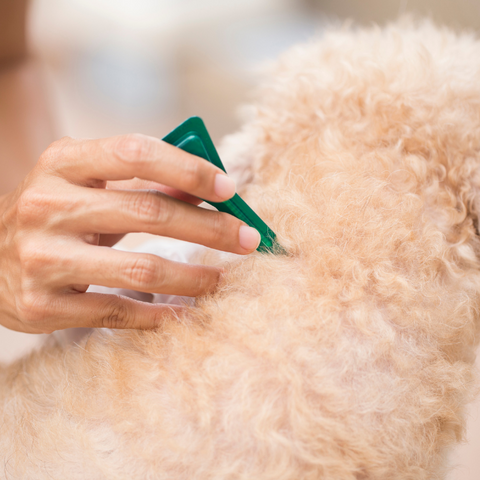
The 5 most common myths about fleas and ticks
Share
You can certainly find a lot of information about fleas and ticks, but which of them is correct? These pests are responsible for serious health problems in our beloved pets, so proper and complete protection is essential.
Read on for the most common myths about ticks and fleas, and if you're in any doubt, it's always a good idea to ask your vet.
1) Flea and tick shampoos offer enough protection
Although flea and/or tick shampoos can kill adult fleas, they do not provide any preventative protection.
And when you consider that fleas can lay 80 to 100 eggs a day, while a tick can lay hundreds of eggs in a week, it's important to do everything you can to repel pests, not just eliminate existing ones. .
Additionally, a flea and tick shampoo does not provide the same long-term protection that ampoules do, since it simply kills the fleas and ticks that are on the animal's coat at the time of the bath.

2) Healthy pets do not get fleas and ticks
Good general health of the dog or cat is certainly an advantage, but this does not mean that healthy animals get fewer ticks or fleas than sick ones. In fact, the only way to get rid of these pests is to use very specific antiparasitic products, such as ampoules and sprays with repellent properties .
3) Antiparasitic protection is only required in the warm months
Regardless of where you live, year-round flea and tick protection is vital to pest control. Although in Greece it is customary to vaccinate the dog or cat only from spring to autumn, it is possible that there are ticks in the winter as well.
Although these pests are most active in the summer months, their eggs and larvae are able to survive even in very cold temperatures, so care is needed.
4) Apple cider vinegar repels ticks
One of the most well-known herbal antiparasitics, applewood is supposed to protect against fleas and ticks, but its action is hardly effective.
In fact, it is only repellent to adult fleas and ticks, while the eggs of the parasites continue to live undisturbed in the animal's coat. In short, with such improvised methods we achieve nothing other than risking the health of our four-legged friend.
5) Animals living inside the house do not need protection
No pet, and especially no dog, is completely inside the house. A cat will go out on the balcony or in the garden and a dog will go out for its daily walk, so it is definitely at risk. Parks, flowers, grasses, soil and other animals are sources of parasites that can infect the animal at any time.
It is therefore extremely important to prevent and protect your faithful friend from ticks and fleas with the right antiparasitics all year round.
Find at Petastero a wide variety of antiparasitics for dogs and antiparasitics for cats at very low prices!



